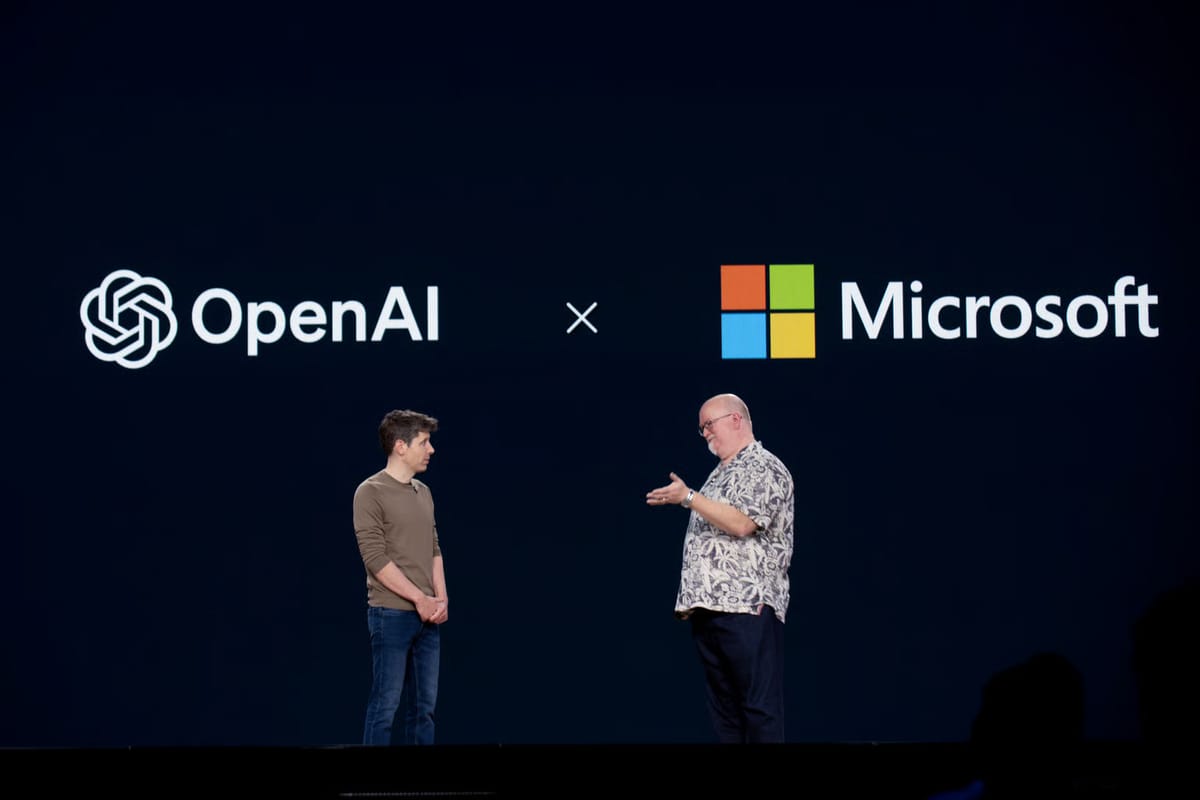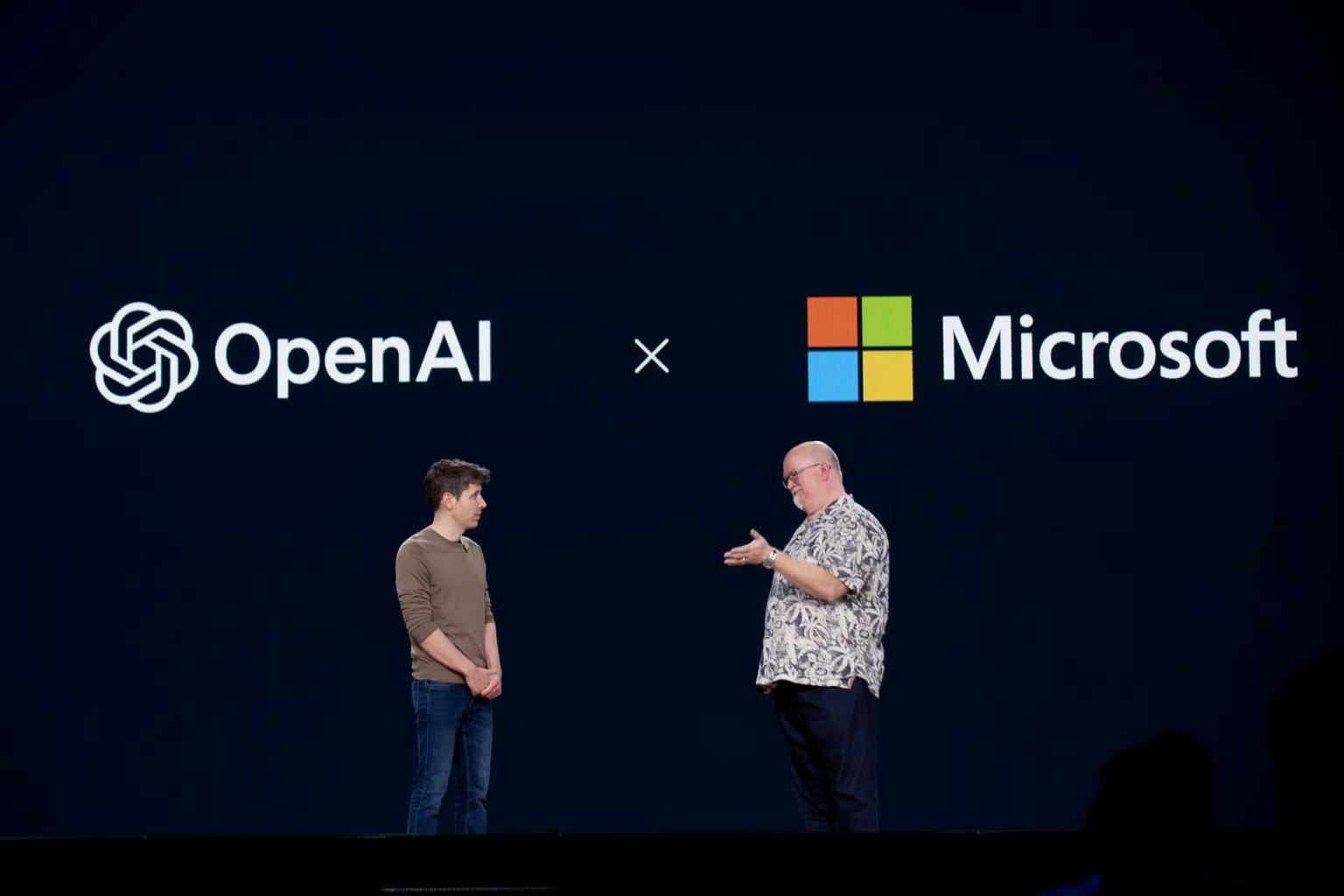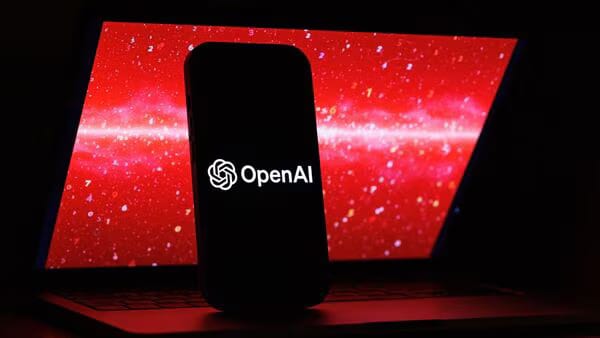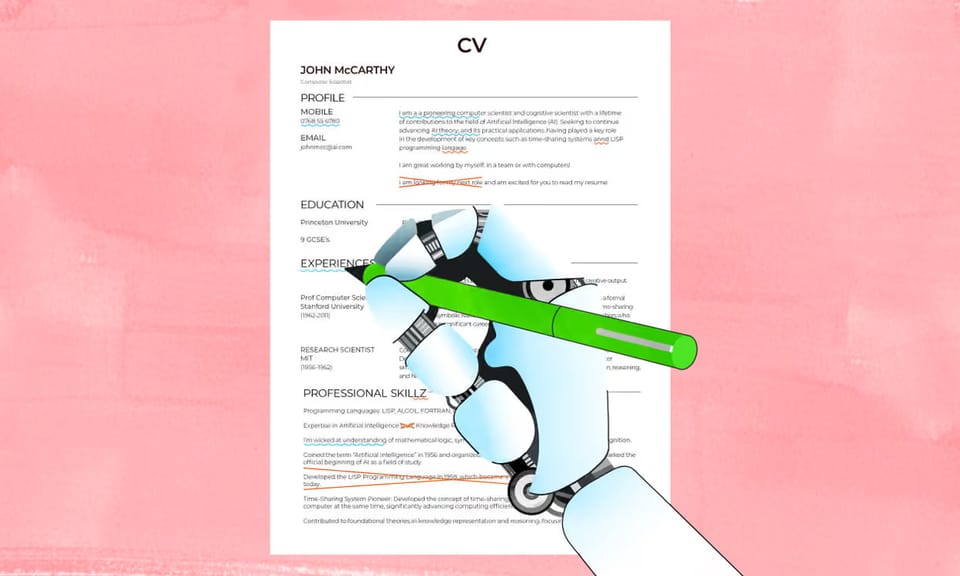Could OpenAI and Microsoft’s Feud Derail the Future of AI?


Here’s what’s in today’s issue:
- Coinbase’s stock is soaring thanks to new crypto payment tools and fresh U.S. rules.
- OpenAI and Microsoft’s rocky relationship could change the future of AI.
- AI is taking over U.S. healthcare fast, with billions pouring in and big players leading the charge.
- Let’s get into it.
Finance
Can Coinbase’s New Payment Power Keep Its Stock Climbing?
Briefing: Coinbase stock jumped 16% in just one day after two big announcements: the U.S. Senate passed a bill to regulate stablecoins, and Coinbase launched a new payment tool that lets stores accept those coins. Investors are now watching the stock closely as excitement builds.
Details: Stablecoins are digital coins always worth about $1, like a digital version of cash. They don’t swing in price like Bitcoin. One of the most popular ones is USDC, which Coinbase partly manages. This week, the U.S. Senate approved the GENIUS Act. This new law requires companies offering stablecoins to keep real dollars in the bank to match each coin, get regular checks from outside auditors, and follow strict rules to prevent fraud or money laundering.
At the same time, Coinbase launched Coinbase Payments, a new tool that lets businesses like Shopify stores accept USDC as payment. That means people can now use stablecoins to shop online just like they would with a debit card, these moves got investors excited. Coinbase’s stock shot up from $255 to $295 in one day. Experts like Rick Bensignor say this could be a “bullish breakout,” meaning the stock might keep climbing. Some say it could reach $330 or even $450. If the stock dips, common support levels to watch are $265 and $212.
Why It Matters: The U.S. is finally setting clear rules for stablecoins, making them safer and more trusted. Coinbase is becoming more than just a trading app. It's now helping people use crypto to pay for real-world things. Big price moves and positive expert predictions show investors believe Coinbase has a strong future. (Investopedia)
Can smart AI bots pay for stuff on their own, and will that help crypto grow? The answer is yes. Coinbase’s new x402 protocol lets AI agents (like smart bots or digital assistants) buy things like data, API access, or cloud tools using stablecoins like USDC, all by themselves, without a person helping. These bots work kind of like mini online shoppers that know when and how to pay in real time. This could lead to way more digital payments and push more people and machines to use blockchains like Ethereum. (PaymentsJournal)
Tech
Could OpenAI and Microsoft’s Feud Derail the Future of AI?

Briefing: The partnership between OpenAI and Microsoft is under serious strain. Once seen as one of the strongest alliances in tech, their relationship is now being tested by internal disagreements over control, competition, and the future direction of AI.
Details: OpenAI leaders have discussed taking legal action against Microsoft, including antitrust complaints and possibly involving federal regulators. The friction has grown as Microsoft continues rolling out its own AI tools such as GitHub Copilot based on OpenAI’s models, while also investing heavily in building its own large language models. A key flashpoint is OpenAI’s $3 billion acquisition of coding startup Windsurf. Microsoft expects to gain access to Windsurf’s technology as part of the deal, but OpenAI is pushing back.
The two are also clashing over OpenAI’s plan to restructure as a public-benefit corporation, which would shift its business model and require Microsoft’s approval. In response, Microsoft is asking for more equity and control in return. Behind the scenes, both companies are taking steps to reduce their dependence on each other, OpenAI is looking at other cloud providers beyond Microsoft Azure, and Microsoft is expanding its own in-house AI research and development.
Why It Matters: This dispute could reshape the future of AI. If the partnership breaks down, it could slow collaboration, change how AI tools are developed and shared, and draw attention from regulators. The outcome could influence how tech giants work together or compete in building the next generation of AI. (Reuters)
If OpenAI and Microsoft split, will AI progress slow down or heat up? Past tech breakups like Elon Musk’s launch of xAI after leaving OpenAI suggest competition speeds things up. Also, could OpenAI’s threat of antitrust action against Microsoft actually work? Similar tech fights like Epic vs. Apple and the U.S. vs. Google show mixed results, but scrutiny of AI monopolies is growing. (Reuters)
Entertainment
$6B+ Team Won Rights to the Most Profitable Characters in History
Quick question: What happens when you combine:
- 100+ trademark victories for characters like Cinderella & Snow White
- Patented AI, AR & VR technology
- A $350B licensed merchandise market
- A team with $6B+ in licensing deals
Answer: You get Elf Labs, the company building AI-powered 3D worlds where kids can have real-time conversations with their Rapunzel doll or play hide-and-seek with Cinderella–right in their living room!
They're reshaping the $2T entertainment market, and for a limited time, you can invest.
The Catch? Tomorrow is the last day to invest & they're about to be sold out!
Learn How to Invest in Elf Labs here.
*Sponsored By Elf Labs. Prospective investors should review the offering materials for details, including all risk factors, before making an investment decision. Any investment involves significant risks, including the potential loss of the total investment.
Health
How Far Can AI Go Before It Runs U.S. Healthcare?
Briefing: A new report from Grand View Research shows that the U.S. artificial intelligence healthcare market reached $13.26 billion in 2024. It's expected to grow fast at an annual rate of 36.8% and could hit $221 billion by 2033.
Details: This growth is being driven by a strong digital health setup, an aging population with more chronic diseases, a need for remote and personalized care, government support, and a shortage of healthcare workers. In 2024, software solutions made up about 44% of the market. On the tech side, machine learning led the way with around 36% of the share. Among the top uses, robot-assisted surgery was the most popular. Pharmaceutical and biotech companies were the biggest users of AI, especially for drug development and clinical trials.
Some of the major players in the space include IBM Watson Health, Microsoft, Google Health, NVIDIA, Amazon Web Services, Tempus AI, Aidoc, Eko Health, Hinge Health, and Abridge.
Why It Matters: The healthcare industry is quickly being transformed by AI. With billions already flowing in, AI is changing how doctors deliver care, how diseases are diagnosed, and how new drugs are developed. It helps reduce paperwork, save time, and personalize treatment. The market’s rapid growth shows there’s big money and opportunity in making healthcare faster, smarter, and more accessible. (Grand View Research)
Is AI making a real clinical impact now? Yes, AI tools are already improving diagnostics, reducing burnout, and saving doctors hours daily. Machine learning in imaging, robot-assisted surgery, drug discovery, and AI scribes are already in use and showing success.
*Disclaimer: The content in this newsletter is for informational purposes only. We do not provide medical, legal, investment, or professional advice. While we do our best to ensure accuracy, some details may evolve over time or be based on third-party sources. Always do your own research and consult professionals before making decisions based on what you read here.




